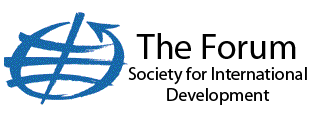UN Member States and stakeholders discussed how the concept of “shared societies” can contribute to defining and implementing the post-2015 development agenda.
Amina Mohammed, Special Adviser of the Secretary-General on Post-2015 Development Planning, Danilo Turk, former president of Slovenia, and Sanjay Reddy, 'Development' Editorial Board, spoke at the policy dialogue on 'Shared Societies Perspectives in the Post-2015 Development Agenda', organized by the Permanent Missions of Italy and Slovenia to the UN, the Club de Madrid and the Society for International Development (SID), on 8 October 2014, in New York, US.
 8 October 2014: UN Member States and stakeholders discussed how the concept of “shared societies” can contribute to defining and implementing the post-2015 development agenda. Amina Mohammed, Special Adviser of the Secretary-General on Post-2015 Development Planning, Danilo Turk, former president of Slovenia, and Sanjay Reddy, ‘Development’ Editorial Board, spoke at the policy dialogue on ‘Shared Societies Perspectives in the Post-2015 Development Agenda’, organized by the Permanent Missions of Italy and Slovenia to the UN, the Club de Madrid and the Society for International Development (SID), on 8 October 2014, in New York, US.
8 October 2014: UN Member States and stakeholders discussed how the concept of “shared societies” can contribute to defining and implementing the post-2015 development agenda. Amina Mohammed, Special Adviser of the Secretary-General on Post-2015 Development Planning, Danilo Turk, former president of Slovenia, and Sanjay Reddy, ‘Development’ Editorial Board, spoke at the policy dialogue on ‘Shared Societies Perspectives in the Post-2015 Development Agenda’, organized by the Permanent Missions of Italy and Slovenia to the UN, the Club de Madrid and the Society for International Development (SID), on 8 October 2014, in New York, US.
Opening the event, Andrej Logar, Permanent Representative of Slovenia to the UN, said a shared society is one in which all individuals are equal participants, and this requires strong political leadership. Reddy highlighted that a shared society is not only compatible with but conducive to shared prosperity, since durable and sustainable prosperity requires successfully solving of internal conflicts.
Turk noted three substantive areas where shared societies are relevant to the post-2015 development agenda: poverty eradication, because understanding the profile of poverty requires disaggregation of data for defining groups; social policy making, which is done regularly at the national and regional levels, but where the UN can offer an example, especially when it comes to social sustainability; and the quest for fairness in development by addressing inequalities within societies. He stressed that the UN needs to increase its multi-stakeholder identity, and said he no longer sees the UN solely as an intergovernmental organization.
Mohammed said each region of the world has a different understanding of sustainable development. Highlighting the importance of political participation, inclusion and equality, she noted that the issue of global governance, which is essential for a truly shared society, has not been “cracked” yet. Speaking about the implementation of the new development agenda, she expressed her hope that, even though the goals will be political, the indicators will not be seen as part of the political debate but as a sound base for accountability. She added that the demand placed on the UN’s development pillar is too much, generating the risk of a collapse, as neither peace and security nor the human rights agenda in its entirety can be solved there.
A special issue of SID’s quarterly ‘Development’ journal, produced in partnership with the Club de Madrid, ‘Development’ 57.1: Shared Societies,’ was presented during the event. [SID Event Flyer] [IISD RS Sources] [Club de Madrid Press Release]